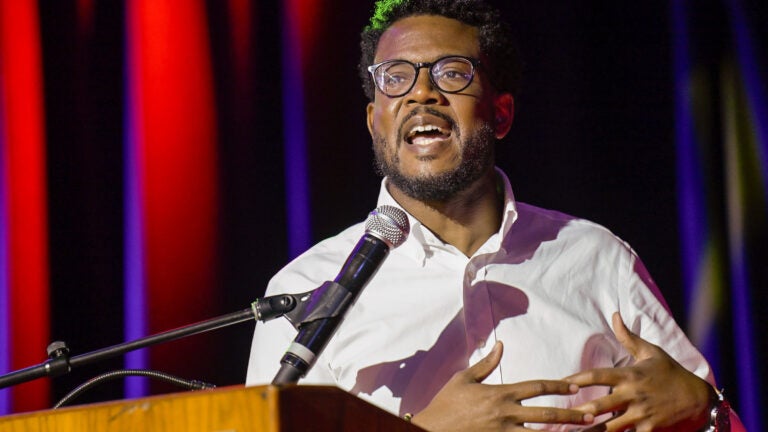
The Rev. Brandon Harris addresses the crowd at Wednesday’s Juneteenth event at Tommy’s Place. (Photo/Gus Ruelas)
Trojans celebrate resilience and being ‘Free to Live Out Loud’ at virtual Juneteenth event
More than 150 people attend a live viewing party at Tommy’s Place to enjoy catered lunch and community.
When the Rev. Brandon Harris took the stage to open Wednesday’s Juneteenth celebration, he shared with the audience of more than 150 students, faculty, alumni and staff that the federal holiday “is a lot more than a cookout and a dance and a celebration.”
“Today, we gather here as Trojans to recommit ourselves to the work of justice and liberation and freedom,” said Harris, USC’s associate dean for religious and spiritual life. “Let’s celebrate together. But also let us remember the much deeper struggle that still surrounds us. There is work for us to do.”
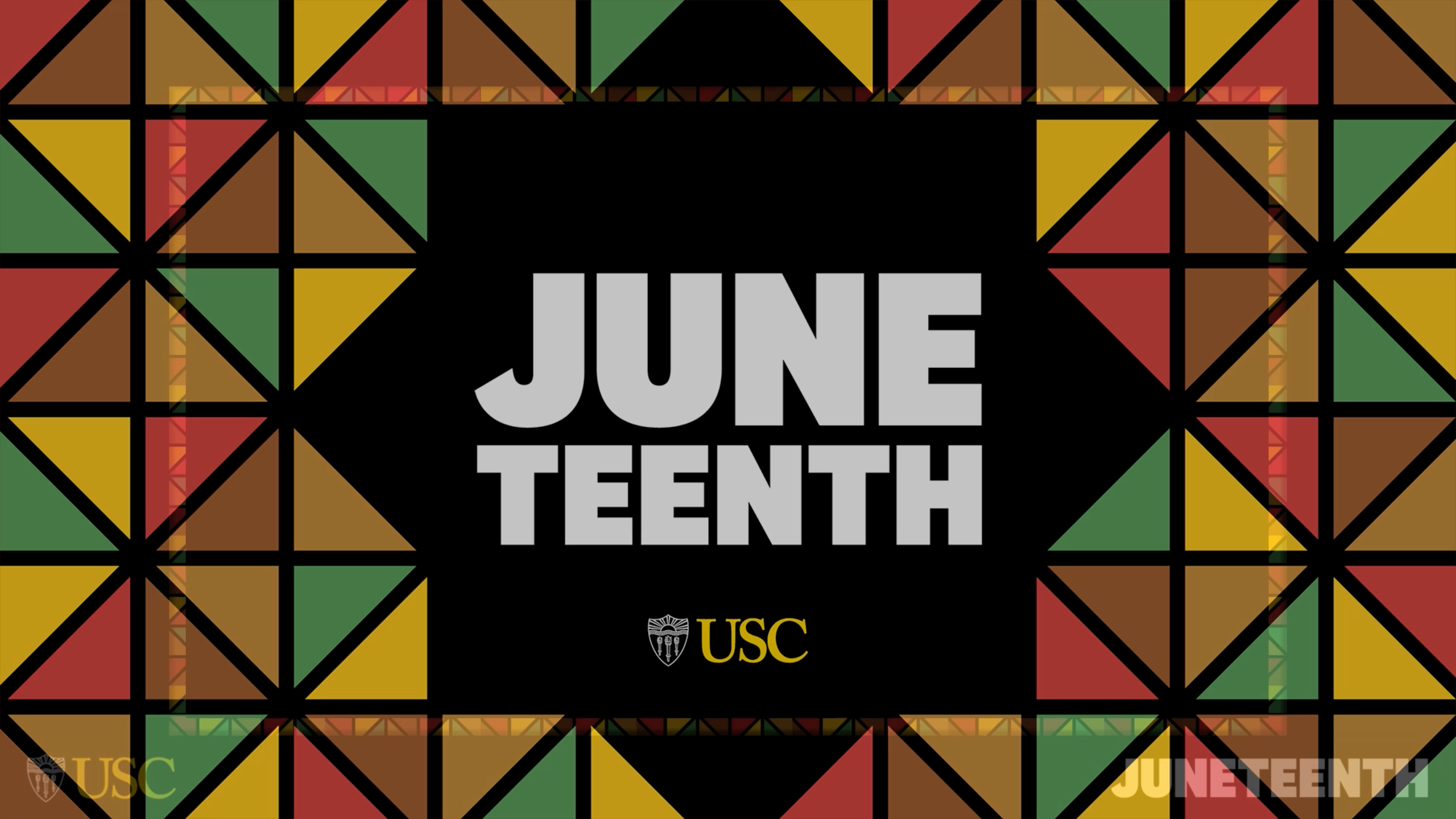
Juneteenth is a 159-year-old tradition celebrating the emancipation of enslaved Americans. It was on June 19, 1865, that enslaved African Americans in Texas were finally told they had been freed — 2½ years after President Abraham Lincoln issued the Emancipation Proclamation.
Black communities have celebrated the event for generations, but it did not become a federal holiday until the signing of the Juneteenth National Independence Day Act by President Joe Biden in 2021 following the high-profile murders of Black Americans George Floyd, Breonna Taylor and others by police.
USC’s celebration, themed “Free to Live Out Loud,” was a hybrid event combining a virtual program with a viewing party at Tommy’s Place on USC’s University Park Campus. Lunch featured barbecue wings, macaroni and cheese, and red velvet cupcakes from Annie’s Soul Delicious in Los Angeles.
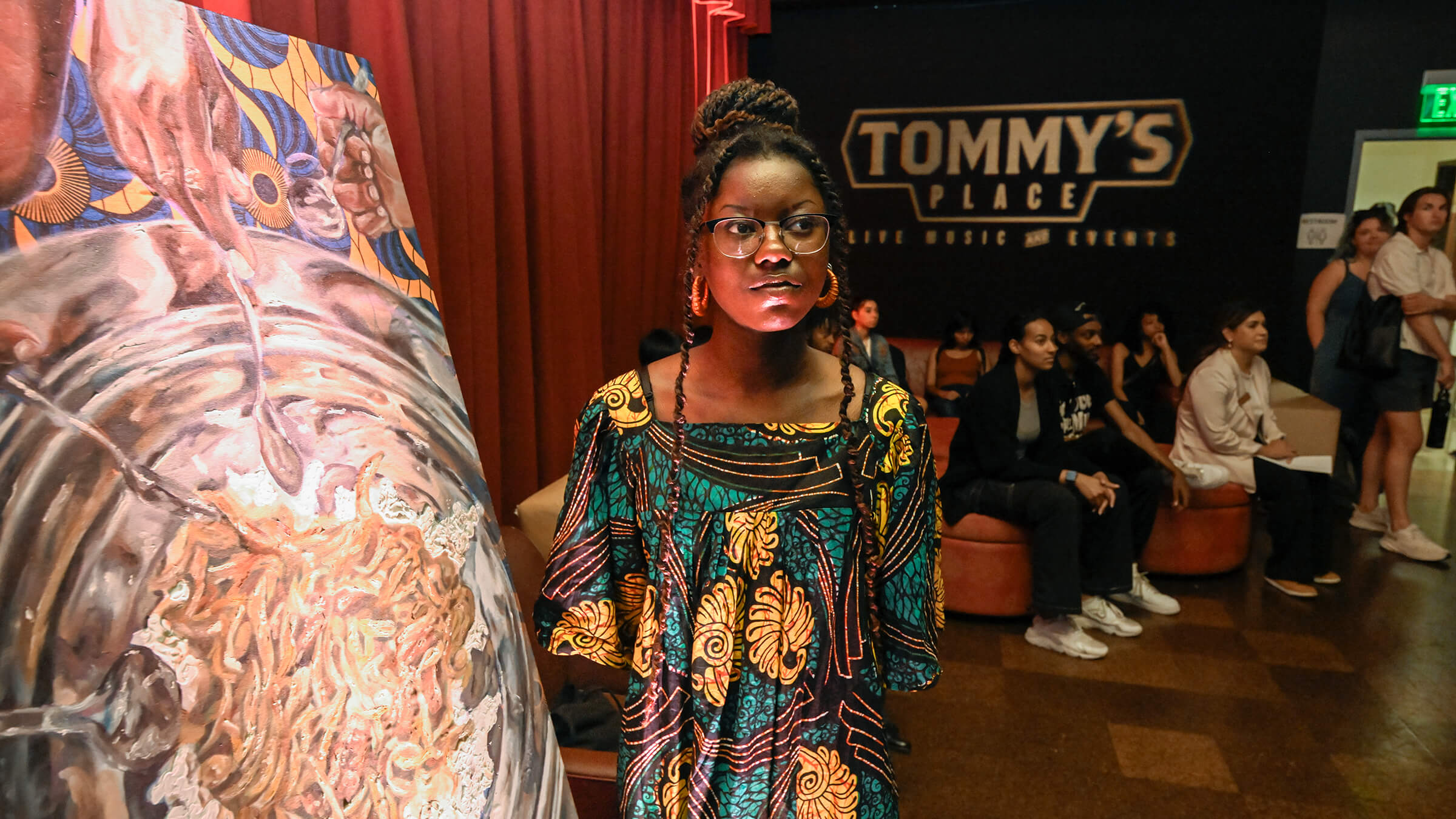
Throughout Tommy’s Place, there were also selections on display from the Clarity and Opacity art show. It featured oil and acrylic paintings about the Black diasporic experience by recent USC Roski School of Art and Design graduate Jayna Dias, who was in attendance.
USC President Carol Folt kicked off the virtual program by saying: “Recognizing Juneteenth as one Trojan Family reminds us that we are all connected.”
Speakers share their mixed emotions
Dean Franita Tolson of the USC Gould School of Law spoke virtually and shared that this commemoration of freedom, liberty and hope is a unique holiday that “stirs a host of mixed emotions” inside of her. She reminded viewers that this multilayered and multifaceted part of history is composed of elements that are “uplifting, yet painful; transformative, yet tragic.”
“The holiday is an opportunity to educate others on the unfortunate legacy of slavery that we, as a country, still struggle with today,” Tolson said. “And to recognize that real actual people, who should have never been enslaved in the first place, were held in bondage much longer than they had to be.”
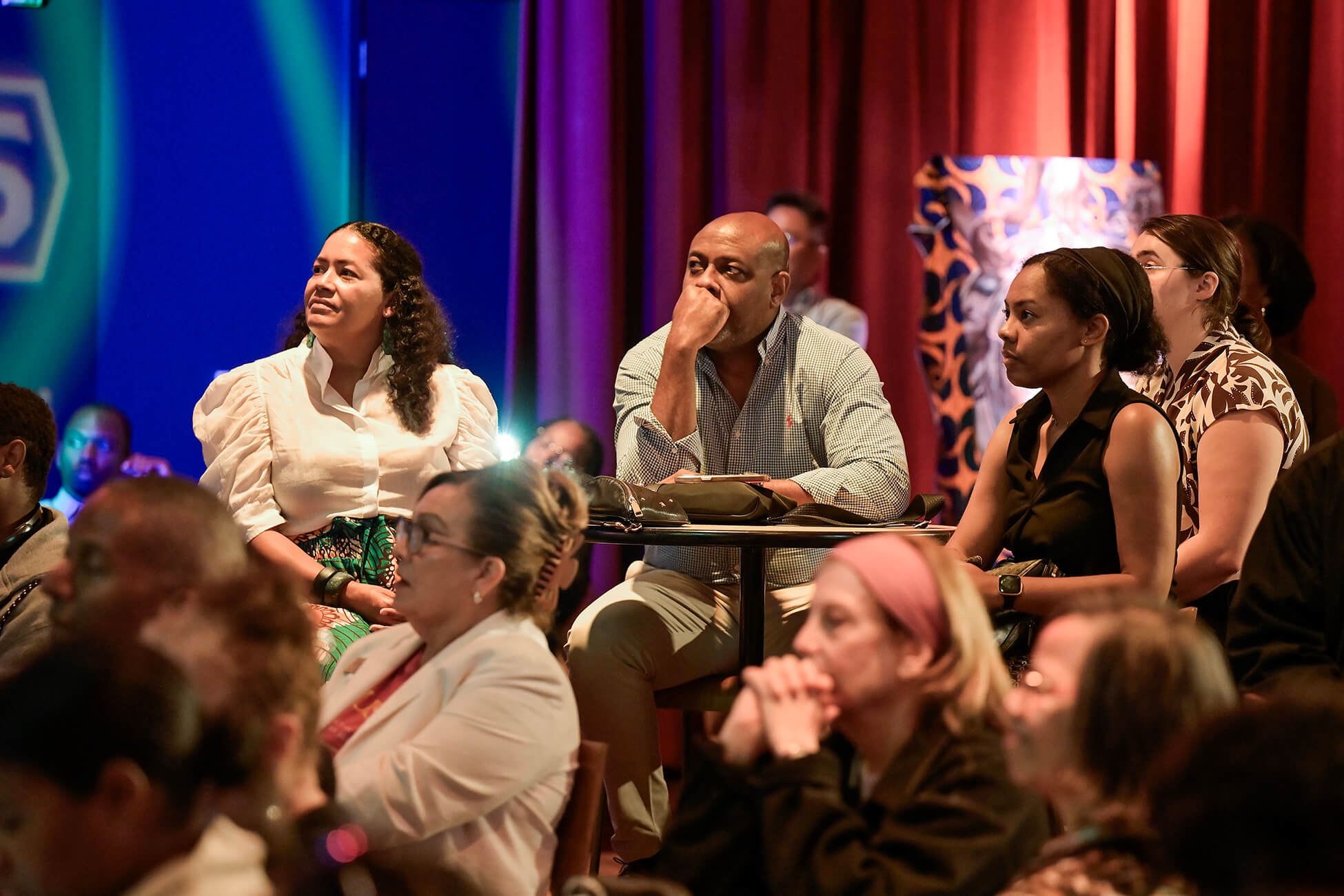
Associate Professor Norris Gunby of the USC Price School of Public Policy shared that he is the sixth-generation grandson of Simon and Emma Fox, who were enslaved on a plantation in Georgia. They were tortured, bred as property and claimed on tax records as chattel.
“Only six short generations ago, my entire family was enslaved,” Gunby said. “The freedom and rights that we all enjoy are covered in the sacrifice of many. My family endured displacement, sexual exploitation and lack of education.”
Gunby said his family still managed to thrive during the post-Civil War Reconstruction era only to be “stagnated” two decades later when state and local Jim Crow laws were introduced in Southern states that enforced racial segregation. The laws remained in place until 1965.
“While I may appear to just be another colleague among the 23,000 faculty and staff and 40,000-plus students at our internationally venerated institution, my existence in this space is the fulfillment of the prayers, dreams and endurance of my ancestors,” he said. “This is why I celebrate Juneteenth.”
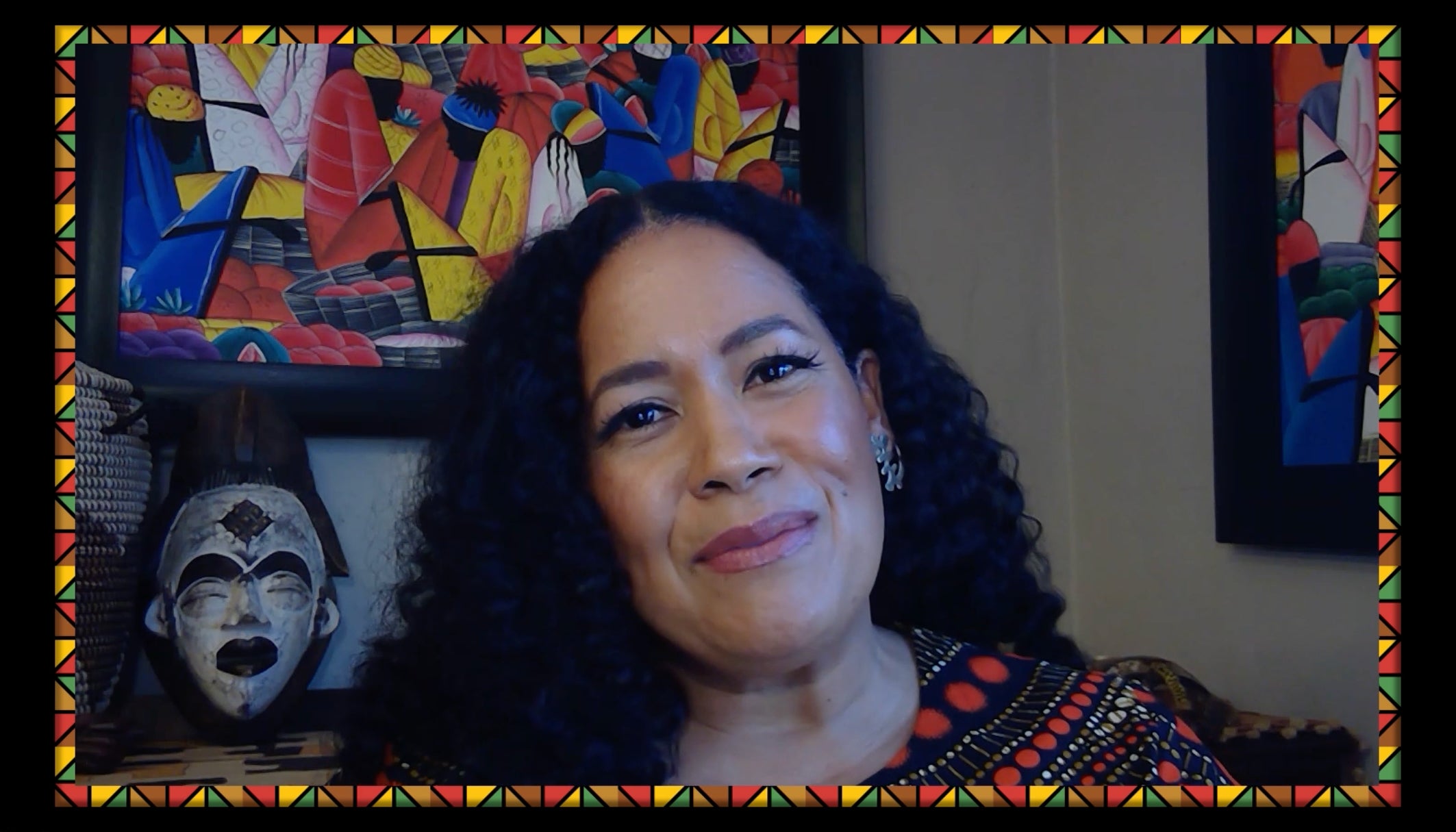
In her remarks, Effie Turnbull Sanders, USC University Relations vice president of civic engagement and economic partnerships, said Juneteenth challenges people to confront some of the “uncomfortable truths” of our nation’s history. She spoke of “the millions of Africans violently ripped from their families and forced into slavery” and how Juneteenth is a reminder of their struggles and triumphs.
“It compels us to reckon with those legacies of slavery and systematic oppression that continue to shape our society,” Turnbull said. “By acknowledging this painful past and taking action to address inequalities that persist as legacies of slavery, Jim Crow, and systematic oppression and racism, we all can strive towards a more inclusive and equitable and brighter future for all.”
Being ‘authentic’ and free
Nicole D. Vick, who received a Doctor of Education degree from the USC Rossier School of Education in May, shared with viewers that when she heard the theme “Free to Live Out Loud,” she immediately thought about the importance of authenticity.
“Now let’s be real, it can be really hard to be our true authentic selves — especially when being ourselves subjects us to so much critique and criticism,” Vick said. “You have to remember, though, when you live out loud, you will never, ever betray yourself. You will always be proud of what you do.”
Stacey Croomes, president of USC Staff Assembly, spoke about being “unapologetically ourselves” on Juneteenth and every day.
“It’s about celebrating our culture, our heritage and our ability to live out loud,” Croomes said. “In our daily lives, we must strive to support one another, lift each other up and create spaces where everyone feels valued and heard.”
Other virtual speakers included USC Rossier Professor Mark Pearson, L.A. City Council member Heather Hutt, USC Black Staff and Faculty Caucus President Cynthia Brass, Associate Professor Tracie Kirkland of the USC Suzanne Dworak-Peck School of Social Work, and recent USC alumna Summer Mosley.
Among the students enjoying the program at the viewing party was recent USC Dornsife College of Letters, Arts and Sciences graduate Nike Taylor, who begins her graduate studies this fall at USC Rossier.
“I felt immediately welcomed,” Taylor said. “I think it’s really important to know where you come from. It’s also important to know about other people’s history even if it isn’t yours. It still applies to you since these are the people who built up America.”

